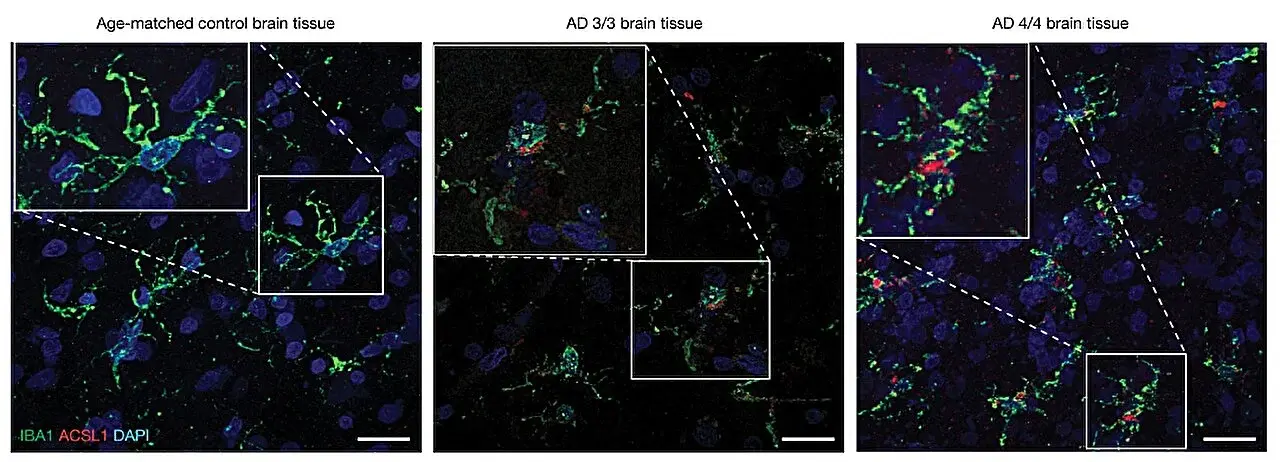Root cause of Alzheimer's may be fat buildup in brain cells, research suggests
Root cause of Alzheimer's may be fat buildup in brain cells, research suggests

Root cause of Alzheimer's may be fat buildup in brain cells, research suggests

A team of neurologists, stem cell specialists and molecular biologists affiliated with several institutions in the U.S. and led by a group at Stanford University School of Medicine has found evidence that the root cause of Alzheimer's disease may be fat buildup in brain cells. The study is published in the journal Nature.

